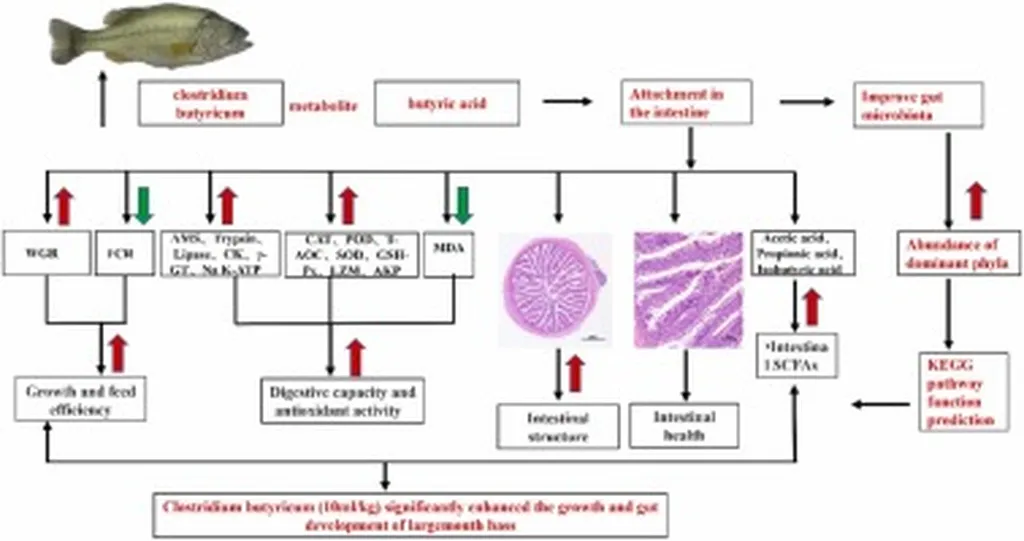In the quest to enhance animal gut health and productivity, researchers have turned to a promising probiotic: Clostridium butyricum. A recent study published in *Applied Microbiology and Biotechnology* reveals that dietary supplementation with a specific strain of this bacterium, *Clostridium butyricum* HADIG-CB003, can significantly alter the gut microbiota of Kunming mice, offering potential benefits for the agriculture sector.
The study, led by Yilin Pang from the College of Bioscience and Biotechnology at Hunan Agricultural University, isolated four strains of *Clostridium butyricum* from pig feces. Among these, the HADIG-CB003 strain stood out due to its high production of butyric acid—a short-chain fatty acid known for its beneficial effects on gut health—and its robust enzymatic activities. “The HADIG-CB003 strain produced 1.54 grams per liter of butyric acid, along with significant cellulase and amylase activities,” Pang explained. “These properties make it a strong candidate for improving gut health in animals.”
To assess the impact of HADIG-CB003 on gut microbiota, researchers fed 12 male Kunming mice a basal diet supplemented with 1×10^10 CFU/kg of the probiotic for two weeks. The results were promising. The supplemented diet did not significantly affect the mice’s body weight or feed-to-gain ratio but led to a notable reduction in harmful bacteria like *Salmonella enterica* and an increase in beneficial gut bacteria. This shift elevated the Firmicutes/Bacteroidetes ratio, a marker often associated with improved gut health.
Moreover, the HADIG-CB003 diet significantly increased fecal butyric acid levels and decreased microbial species richness in the cecal contents of the mice. “The changes in the gut microbiota suggest that HADIG-CB003 could play a crucial role in maintaining gut health and potentially enhancing the overall productivity of livestock,” Pang noted.
The implications for the agriculture sector are substantial. Probiotics like HADIG-CB003 could offer a natural and effective way to improve animal health, reduce the reliance on antibiotics, and enhance productivity. As the demand for sustainable and efficient animal farming practices grows, such probiotics could become a valuable tool for farmers and agricultural businesses.
The study also highlights the effectiveness of using tryptose sulfite cycloserine (TSC) double-layer plates, PCR screening, and 16S rRNA sequencing to isolate and identify *Clostridium butyricum* strains from pig feces. This method could streamline the discovery and development of new probiotic strains, accelerating advancements in the field.
As researchers continue to explore the potential of probiotics, the findings from this study offer a glimpse into the future of animal health and agriculture. The use of targeted probiotic supplementation could revolutionize how we approach livestock management, paving the way for more sustainable and productive farming practices.

